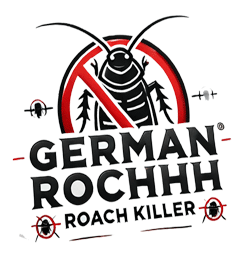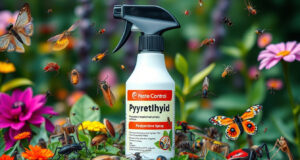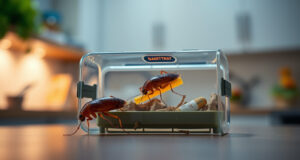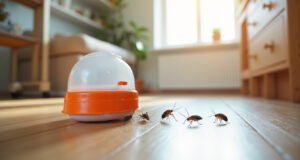
In today’s world, a home free of pests matters for both your ease and your health. Household sprays help you stop bugs that enter your space. This guide shows the kinds of sprays, how to use them well, safe steps, and tips to pick the right fix for a bug-free place.
Understanding Household Insecticides
Household insecticides are liquids or powders that kill or keep bugs away. They work on ants, roaches, mosquitoes, fleas, bedbugs, and more. Know your choices so you can pick the best plan for your bug issue.
Types of Household Insecticides
1. Chemical Insecticides
These man-made sprays give fast results. They act on a bug’s nervous system or key body processes. Some common chemical sprays are:
- Pyrethroids: Made from a kind of flower, these sprays stop bugs from moving. They keep working for a long span of time.
- Neonicotinoids: These sprays affect the main nerve center in a bug. They work well on many bug types.
2. Natural Insecticides
Best for those who want a green choice, these sprays come from plants or minerals. Common forms are:
- Diatomaceous Earth: This fine powder comes from fossil remains. It dries out bugs to kill them.
- Neem Oil: Squeezed from neem tree seeds, this oil stops bugs from growing and making more.
- Essential Oils: Oils like peppermint, lavender, and tea tree keep bugs away. They help you mix your own spray at home.
3. Traps and Baits
Though not sprays, traps and baits work well to bring bugs in close. They use food or scents to attract bugs. Some traps use a spray after bugs are caught.
Choosing the Right Household Insecticide
Pick a spray based on the bug type, the level of the bug problem, and safety for all at home.
- Know the Bug: See which bug you face to choose a spray that fits. Roaches need a different fix than ants or wasps.
- Keep it Safe: If kids or pets live with you, go with a mild spray. Natural sprays are often a safer pick.
- Read the Label: Check how to use the spray, its key parts, and warnings on the package.
Safety Measures When Using Household Insecticides
When you use insecticides, keep safety in mind. Here are some safe steps:
- Wear Gear: Use gloves, a mask, and goggles so the spray does not harm you.
- Air Out the Room: Open windows or use a fan to keep air moving when you spray.
- Follow Guide: Stick to the spray’s printed rules for how to use and the right amount.
- Safe Storage: Keep all sprays high from kids and pets. Store them in their marked bottles.
Conclusion
Household sprays play a key role in keeping your home bug-free. With a clear view of the types available and a careful pick for your bug problem, you can clear unwanted bugs fast. Use safe steps when you spray to keep your family safe. Whether you choose a chemical spray for fast work or a natural spray for a gentler path, your goal stays the same: a home that feels safe, neat, and without bugs. Keep this guide close for any future bug problems and enjoy the calm that comes with a pest-free space.




